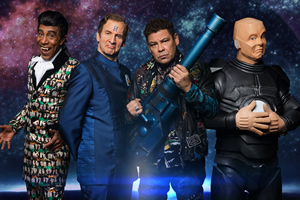Launching Red Dwarf: Series I retrospective
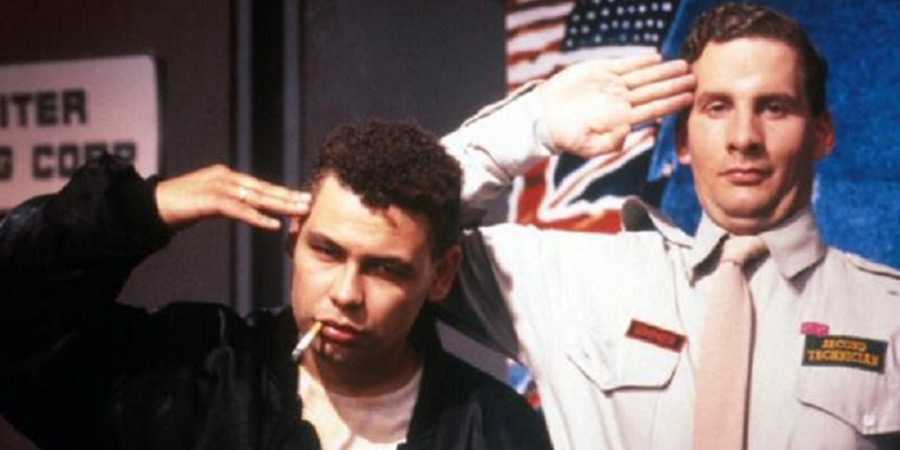
The mining ship Red Dwarf, its crew are dead, killed by a radiation leak. The only survivors were Dave Lister, who was in suspended animation during the disaster, and his pregnant cat, who was safely sealed in the hold. Revived three-million years later, Lister's only companions are a life form who evolved from his cat, Arnold Rimmer, a hologram simulation of one of the dead crew, and Holly who serves them as the ship's computer, who proudly boasts that he has 'an IQ of 6000; the same IQ as 6000 PE teachers'.
This was one of our earliest introductions to a late-night BBC Two sci-fi series that took over the world. Building on what Douglas Adams had achieved with The Hitchhiker's Guide To The Galaxy the best part of a decade earlier, Red Dwarf further proved that nothing could shake up the comedy landscape more than a sitcom about a load of smeg heads floating around in the vast wastes of space.
And over the years few sitcoms have changed more than Red Dwarf. In fact, the series has been constantly evolving for over thirty years. The journey from its conception as a dark, contemplative comedy, moving slowly to an all-action Emmy-award-winning sci-fi blockbuster of a sitcom has been nothing short of outstanding. How did it all progress so naturally? We're going to find out.
In the early 1980s, Red Dwarf's two creators, Rob Grant and Doug Naylor were writing a Radio 4 comedy sketch show called Son Of Cliché. Amongst others, it featured a series of sketches entitled Dave Hollins: Space Cadet, which was an Alien parody of sorts, about a lone survivor stranded in deep space with only a computer for company (voiced by Chris Barrie). These sketches were a spark that ignited and eventually became Red Dwarf.
Further inspiration for the series came from the 1974 science-fiction comedy movie Dark Star. Doug Naylor said that he'd watched it and thought: "It's crazy no one's done a sitcom like that".
After writing for Spitting Image and gaining further inspiration from the advice of Hancock's Half Hour and Steptoe And Son writers Ray Galton and Alan Simpson, Rob and Doug eventually took a script to the BBC. Comedy producers John Lloyd (the man who had helped Douglas Adams to realise The Hitchhiker's Guide To The Galaxy) and Paul Jackson both loved the script and wanted to support the show, but that didn't stop the BBC rejecting it ... three times.
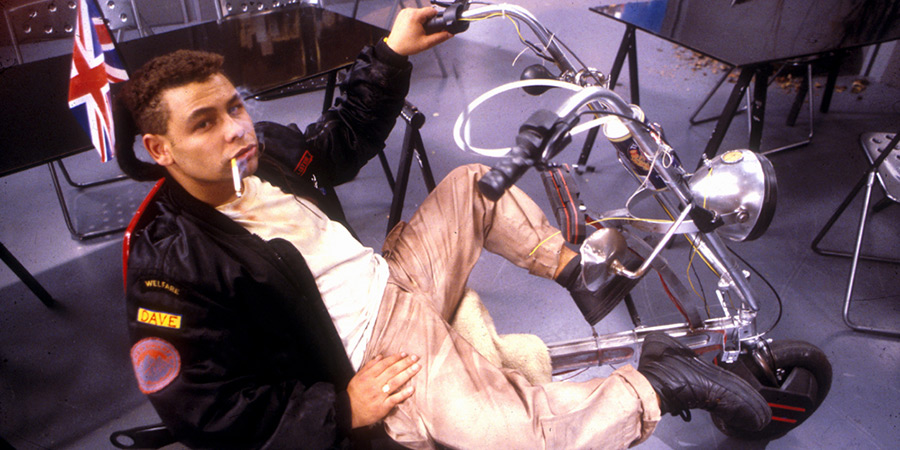
As the script continued to be touted about, Paul Jackson, who knew Craig Charles through his work on Saturday Night Live, decided to show Craig the script, to ask him if he felt that the part of Cat was in any way racist. Charles told him that he didn't find it one bit racist, and asked if he could audition for the part of Lister. However, none of the Red Dwarf team were particularly enthusiastic about this. At the time Charles was an urban poet, his political commentary and new approach to stand-up was turning heads on Saturday Night Live, but would it be right for a sci-fi sitcom? Craig had no acting experience whatsoever and, despite being very keen to work with Jackson - who had some seriously impressive comedy credits to his name (such as The Young Ones and The Two Ronnies) - Charles later admitted that he wasn't even particularly sold on the series as a comedy at all.
Rob and Doug had stated that they were looking to cast a character along the lines of Jim 'Iggy' (played by Christopher Lloyd) in the 1970s American sitcom Taxi. The original plans for the character of Lister were a surprisingly long way away from the curry-loving space bum we're familiar with today. But still, they invited Craig to audition.
As the script continued its journey around the BBC, the legendary Alan Rickman and the mighty Alfred Molina both expressed an interest in the script, and were lined up to play Lister and Rimmer respectively. Rickman was particularly keen to play Lister because he thought that playing Rimmer would be less of a challenge for him. This was a couple of years before he became Hans Gruber in the global phenomenon Die Hard. In a parallel universe, with Rickman starring in Red Dwarf, who would have fallen off the Nakatomi Plaza building?
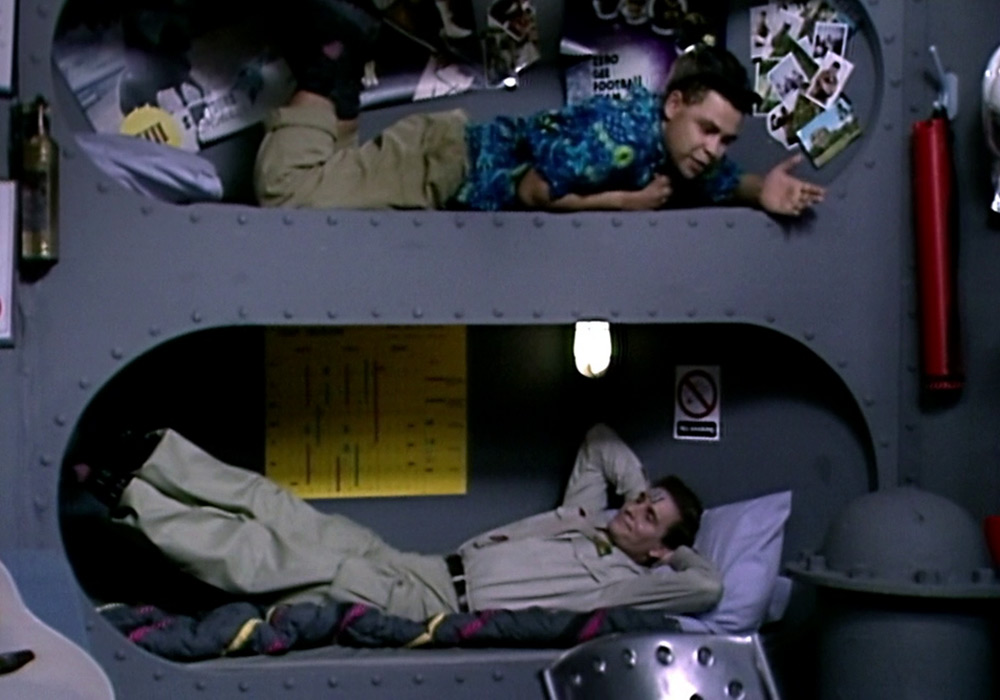
The team had even gone so far as to send a rejection to Chris Barrie in favour of Alfred Molina, but this was before they'd decided on casting Craig Charles. When Red Dwarf was finally commissioned, it was decided that Craig Charles and Chris Barrie made a better double act, as an intriguing chemistry seemed to have developed between the pair. There was a tension between them, but not one that was without some small element of affection, however minute. It was the Steptoe And Son dynamic that the crew had been searching for.
Meanwhile, Danny John-Jules was the first person the team auditioned for Cat, and the only man that they wanted for the job. He turned up fashionably late and won the audition in style. The first lines in the script Danny read for his audition were: 'Ahwwwwh! Ohhh Ehh Arhhhh! Ohhhhh! How am I looking?'.
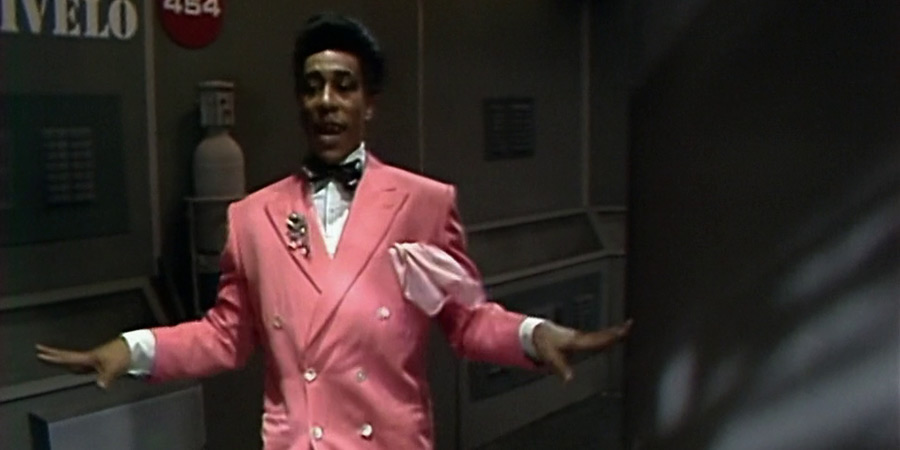
The series was eventually commissioned through Paul Jackson, who had a budget to make Series 2 of Happy Families, Ben Elton's comedy drama, which hadn't been made and presumably wasn't going ahead. It was something of an accounting error. Jackson later explained in the Launching Red Dwarf documentary, 'Red Dwarf got made because Happy Families Series 2 had been written into an annual budget, when it never existed.' It was as simple as that.
The boys from the Dwarf may have been given the green light, but even then, the series almost never made it to TV. Filming directly clashed with a strike (some 500 electricians walked out on the BBC over pay disputes back in 1987). Whilst all six episodes of the series were rehearsed, all the recording dates came and went without a single shot being filmed. The team were encouraged to abandon the entire project before it had even begun.
Not even a pilot had been filmed, which was quite unusual at the time, and something Doug Naylor described as a setback. It had taken a lot of work to persuade the BBC to stick with the show. But, after all this time and effort, when the cast and crew finally got into the studio, they were going into their first recordings blind, with no feeling for what worked and what didn't.
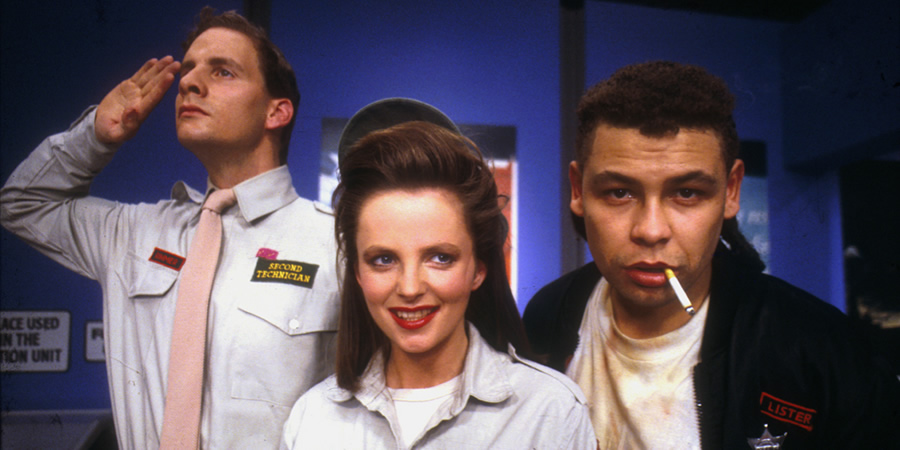
The long delay caused by the strike may have forced a recasting of Lister's long lost love interest, navigation officer Kristine Kochanski, from Alexandra Pigg to Clare Grogan, but, on a positive note, it meant that some truly sophisticated 'Scutters' could be built. These remote-controlled robots took three months to build, despite the team originally having been given a strict deadline of two weeks. It was a standing joke between the cast that any scenes with the Scutters would take a ridiculous amount of time to set-up. Craig Charles described the robots as 'Bastards!'. Chris Barrie remembered Craig asking him what they were doing next. 'A scene with the scutters,' he told him. 'Right,' Craig said, 'I've got time for a fag'.
The models that were made for the famous exterior shots of the ship also had longer to be developed, which made the entire series look incredibly sophisticated for its year. So, in some ways, the delay was a blessing. Initially the team were fairly horrified to find out that the ship had been painted red in a very literal interpretation of the mining ship's name. 'But it's called Red Dwarf!' one of the model builders told them. Eventually, the unintended colour scheme prevailed.
For the first ever recording, the team struggled to get people in to fill the studio audience. Doug Naylor described hot-footing it to the local pub, begging people to join them for an evening of comedy, proudly noting that he did persuade 'most of the pub' to come along.
Recordings went well, but there were fears that too much emphasis was being placed on the story, and that there weren't enough jokes.
In fact, quite a bit of Red Dwarf's first series was re-worked after the studio recordings. Norman Lovett's Holly was the disembodied voice of Red Dwarf's computer for the first three episodes, but it was on Norman's insistence that he was put in front of the cameras to allow for a proper visual comedy performance. He'd actually previously auditioned for Rimmer, before landing the job of the ship's prankish computer and had been determined to get back in front of the camera ever since.
Retakes of Holly in his new computer screen guise were re-shot on a spare recording day, which, by luck, the crew found they had, and although they weren't strictly supposed to be filming for what turned out to be an extra week, nobody at the BBC seemed to notice anything was amiss. As well as the Holly retakes, extra gags were also cut into all six of the previous episodes. The episodes that made up the first series of Red Dwarf were:
The End
Future Echoes
Balance Of Power
Waiting For God
Confidence And Paranoia
Me²
Pathos was something that really separated the first two series from the later years, more specifically the golden era, which most fans would define as Series III-VI. By then, the show had taken on a more traditional sitcom feel. But there is no denying that the inclusion of such drama and conflict in the first series gave a unique mood to early Red Dwarf. The classic 'Everybody's dead Dave' scene is a really fine example of this. It's hard to say why it works. Treading the line between tragedy and comedy, Lister traverses the ship asking after the fates of his crew mates. The audience reaction could have gone either way, in the end (no pun intended) it became one of Red Dwarf's defining moments.
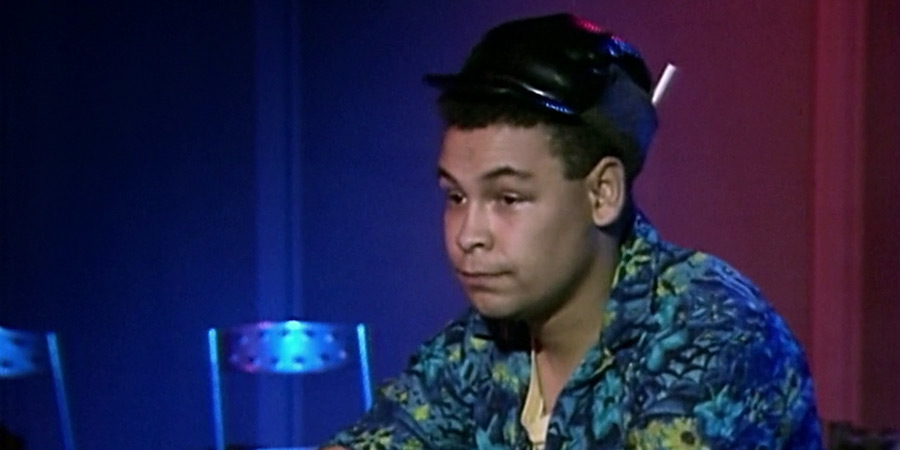
Another iconic scene from the first series was Rimmer's 'gazpacho soup' story, performed brilliantly by Chris Barrie. This was a real-life incident that Rob and Doug witnessed whilst working at Thames Television. Although apparently the person in question didn't actually get so far as sending back their cold soup, it was a mistake anybody could have made. Rimmer's embarrassment was re-created in the epic style of a Citizen Kane flashback complete with a broken snow globe. Homages to classic films would become a mainstay of Red Dwarf for many years to come.
Rob and Doug wrote the series with the strict rule that they had to create genuine sci-fi stories without using aliens or monsters. It set Red Dwarf apart from other shows of the age, taking a different approach to science fiction, almost along the lines of the writings of Philip K. Dick. In fact, many years later, Dick's Blade Runner was mentioned as the direct inspiration for Red Dwarf in Back to Earth. And while the show did eventually start having monsters and foes to take down each week à la Doctor Who, Red Dwarf has never lost that core characterisation that was laid down in the first series.
Doug Naylor said of the show's conception:
"It's one thing to write a pilot and people go 'Well, what happens in future episodes?' and you go, 'Ah, well they'll have all sorts of adventures, they'll be travelling through space, amazing things will happen' and then, when you actually get the commission and go, 'Well, hang on, we've killed all humans off, we've got this 'no aliens' rule', um... what are we going to do?!"
Rob Grant added that Red Dwarf was 'a prison without any guards in it'.
Given the premise, the writers had to think outside the box to create storylines. They turned to thought experiments, which have always been at the heart of the show, but never more than in the first series, with episodes posing such conundrums as Me²'s question, 'Could you live with yourself?'.
Future Echoes asks, 'Can we change a predetermined future, or do we always have a destiny?', whilst Confidence and Paranoia makes the negative and positive aspects of our personalities flesh, and concludes that we need both to work in harmony. Pretty smeggin' deep concepts for a sitcom; and they were all paired with an incredible score to give weight and depth to these meaty subjects.
Red Dwarf's overture came courtesy of Howard Goodall, also responsible for such famous sitcom theme tunes as Blackadder and Mr Bean. He was the man who could really give a series an identity. He felt that rather than use futuristic synths (that would probably date within 5 minutes), he wanted a timeless sound. To achieve this, he used a technique he dubbed 'Phil Spector's wall of sound', created by recording bass notes on a grand piano over and over again, achieving a powerful echo which emulated the emptiness of space.
There are many moments where the music becomes the star of the show, perhaps the greatest example of this is the Space Walk theme used in the episode Confidence and Paranoia where Red Dwarf's signature tune is re-orchestrated into a dreamy waltz, which plays whilst Lister slowly discovers that his confidence personified is more than a little psychotic. The entire scene is poignant, but in a very odd way and the music encapsulates that feeling utterly and perfectly.
Red Dwarf's first series may have had a bumpy ride to our TV screens, but in the ratings it did very well (hitting 5 million viewers). A second series was apparently already commissioned before the first was even transmitted and it had become clear by the time the last episode aired that the BBC had a cult hit on their hands. However, they could never have imagined just how big and long-running a hit the series would turn out to be.
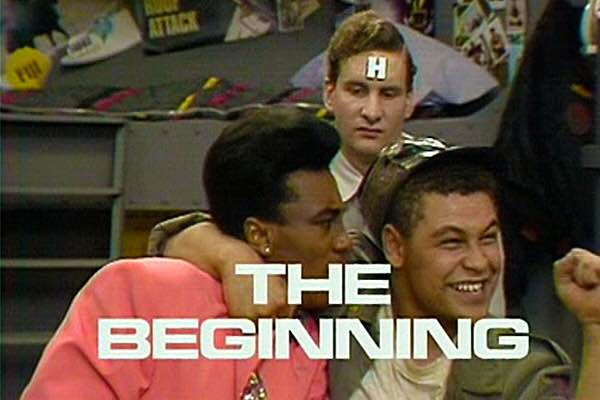
Help us publish more great content by becoming a BCG Supporter. You'll be backing our mission to champion, celebrate and promote British comedy in all its forms: past, present and future.
We understand times are tough, but if you believe in the power of laughter we'd be honoured to have you join us. Advertising doesn't cover our costs, so every single donation matters and is put to good use. Thank you.
Love comedy? Find out more
